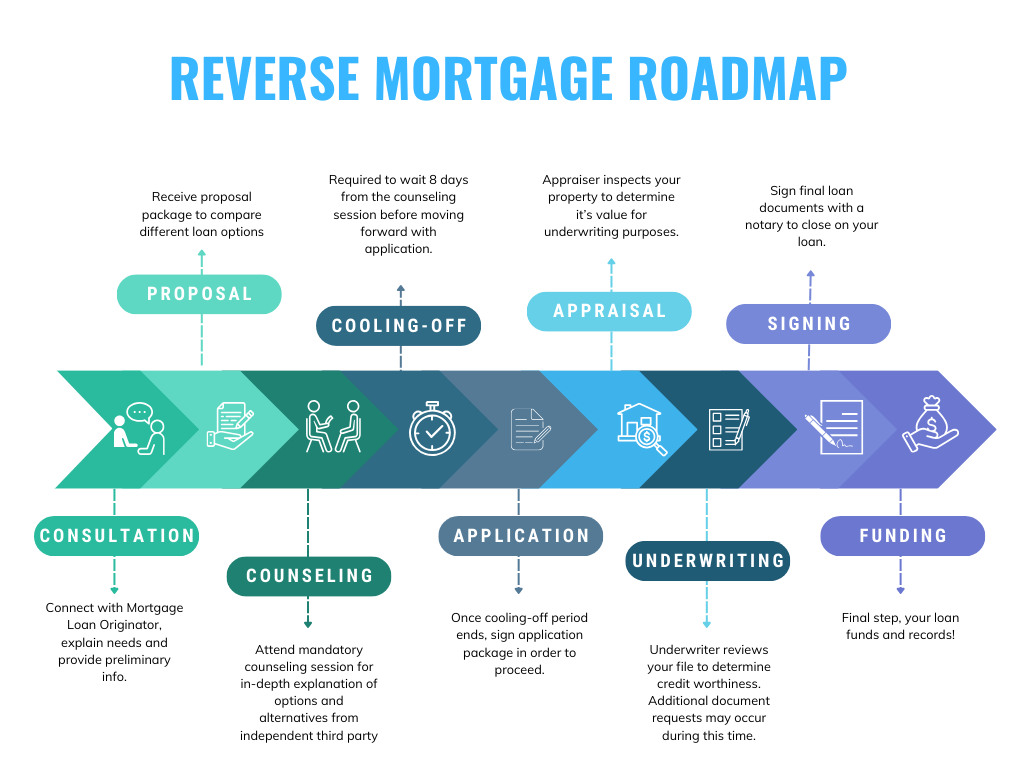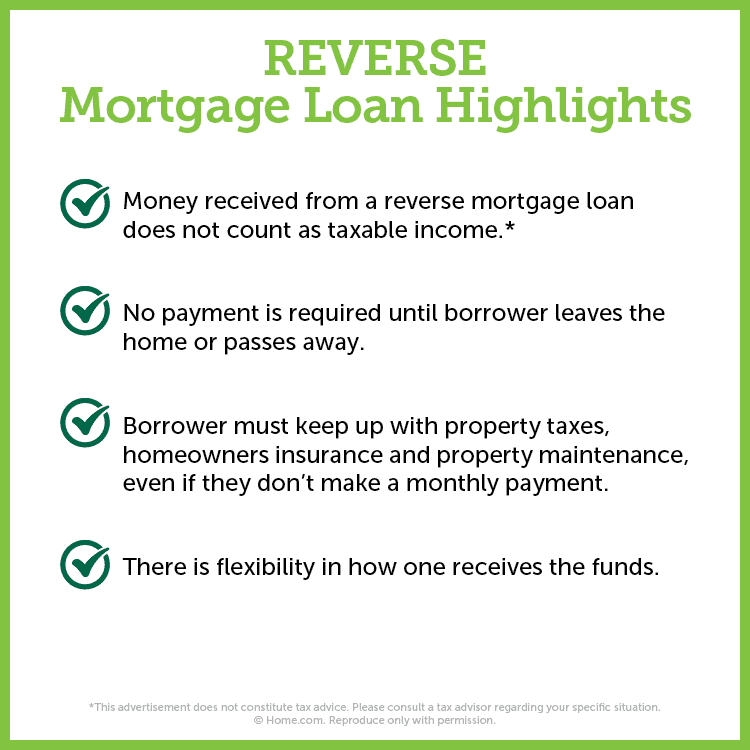The Benefits of Choosing to Purchase Reverse Mortgage for Your Home
The Benefits of Choosing to Purchase Reverse Mortgage for Your Home
Blog Article
Empower Your Retirement: The Smart Means to Acquisition a Reverse Home Loan
As retired life techniques, numerous people look for reliable approaches to enhance their economic freedom and wellness. Among these methods, a reverse home loan becomes a practical option for homeowners aged 62 and older, permitting them to take advantage of their home equity without the need of regular monthly payments. While this monetary tool supplies numerous advantages, consisting of enhanced money circulation and the potential to cover necessary expenses, it is essential to recognize the ins and outs of the application procedure and vital factors to consider involved. The next steps might expose exactly how you can make a knowledgeable decision that might considerably influence your retirement years.
Understanding Reverse Home Mortgages
Recognizing reverse home mortgages can be important for home owners seeking financial versatility in retirement. A reverse mortgage is a monetary item that permits eligible house owners, commonly aged 62 and older, to transform a portion of their home equity into cash. Unlike traditional home loans, where debtors make month-to-month settlements to a lending institution, reverse home mortgages make it possible for home owners to receive payments or a swelling amount while maintaining possession of their building.
The amount available with a reverse home loan depends upon a number of factors, consisting of the home owner's age, the home's worth, and existing interest prices. Notably, the lending does not need to be settled until the house owner offers the home, leaves, or passes away.
It is vital for prospective borrowers to comprehend the implications of this financial item, including the effect on estate inheritance, tax obligation considerations, and ongoing obligations connected to property maintenance, taxes, and insurance coverage. In addition, counseling sessions with accredited professionals are commonly called for to make certain that debtors fully comprehend the terms of the finance. Generally, a detailed understanding of reverse home loans can empower homeowners to make educated choices about their monetary future in retirement.
Advantages of a Reverse Mortgage
A reverse home loan offers a number of compelling benefits for qualified property owners, specifically those in retired life. This monetary device enables seniors to transform a portion of their home equity right into money, providing important funds without the requirement for month-to-month home loan settlements. The cash acquired can be used for various functions, such as covering clinical expenditures, making home enhancements, or supplementing retirement revenue, hence boosting overall financial versatility.
One substantial benefit of a reverse home mortgage is that it does not need repayment up until the homeowner leaves, offers the home, or dies - purchase reverse mortgage. This function allows retirees to maintain their lifestyle and meet unforeseen prices without the concern of regular monthly settlements. Additionally, the funds gotten are generally tax-free, permitting home owners to utilize their cash money without fear of tax obligation effects
Furthermore, a reverse home mortgage can provide assurance, knowing that it can work as an economic safeguard during tough times. House owners also keep possession of their homes, ensuring they can continue living in an acquainted setting. Eventually, a reverse home loan can be a tactical funds, empowering retired people to manage their finances efficiently while enjoying their golden years.
The Application Process
Browsing the application procedure for a reverse home mortgage is an important step for homeowners considering this financial choice. The first stage includes assessing qualification, which normally calls for the house owner to be a minimum of 62 years old, very own the residential or commercial property outright or have a reduced home loan equilibrium, and occupy the home as their key home.
Once qualification is verified, home owners have to undertake a counseling session with a HUD-approved counselor. This session makes certain that they completely understand the implications of a reverse mortgage, consisting of the duties entailed. purchase reverse mortgage. After completing counseling, applicants can proceed to gather required documents, consisting of evidence of earnings, properties, and the home's value
The next action entails sending an application to a loan provider, that will certainly examine the financial and building qualifications. An appraisal of the home will certainly likewise be carried out to identify its market price. If approved, the lending institution will certainly provide loan terms, which should be assessed carefully.
Upon acceptance, the closing procedure complies with, where final records are signed, and funds are paid out. Comprehending each stage of this application process can substantially improve the homeowner's confidence and decision-making regarding reverse home mortgages.

Secret Factors To Consider Before Investing In
Investing in a reverse home loan is a considerable financial decision that calls for cautious factor to consider of a number of essential elements. Comprehending your eligibility is vital. House owners need to you can try these out go to the very least 62 years of ages, and the home must be their main house. Assessing your monetary requirements and objectives is equally essential; identify whether a reverse home mortgage aligns with your long-term strategies.

A reverse home loan can impact your eligibility for certain government benefits, such as Medicaid. By completely evaluating these factors to consider, you can make a more educated choice about whether a reverse mortgage is the right financial approach for your retirement.
Taking advantage of Your Funds
When you have actually safeguarded a reverse mortgage, efficiently taking care of the funds ends up being a priority. The versatility of a reverse home loan allows house owners to make use of the funds in various means, but critical preparation is important to maximize their benefits.
One vital technique is to produce a budget that details your monthly expenses and financial objectives. By identifying essential costs such as medical care, home tax obligations, and home maintenance, you can allocate funds accordingly to guarantee long-lasting sustainability. Additionally, consider using a part of the funds for financial investments that can produce revenue or value in time, such as mutual funds or dividend-paying stocks.
Another essential element is to keep a reserve. Alloting a get from your reverse home loan can help cover unexpected prices, giving peace of mind and economic stability. Moreover, speak with a financial expert to explore possible tax effects and just how to incorporate reverse home mortgage funds into your total retired life technique.
Ultimately, sensible management of reverse mortgage funds can improve your financial security, permitting you to appreciate your retirement years without the anxiety of financial unpredictability. Cautious planning and informed decision-making will guarantee that your funds work properly for you.
Verdict
In verdict, a reverse mortgage presents a viable financial other technique for seniors seeking to improve their retirement experience. By transforming home equity right into easily accessible funds, individuals can resolve important expenses and protected added economic resources without incurring monthly payments.
Understanding reverse home mortgages can be important for homeowners seeking economic adaptability in retirement. A reverse home mortgage is an economic product that permits qualified homeowners, usually aged 62 and older, to transform a part of their home equity right into money. Unlike conventional mortgages, their website where debtors make monthly payments to a lender, reverse home loans make it possible for home owners to get payments or a lump amount while preserving ownership of their home.
Generally, an extensive understanding of reverse mortgages can empower property owners to make informed decisions regarding their financial future in retired life.
Consult with a financial expert to discover possible tax obligation implications and how to incorporate reverse home loan funds right into your general retired life technique.
Report this page